By Mark Fonda, Executive Vice President, Engineering and Chief Technical Officer,
Meridian Energy Group Inc.
Meridian Energy Group Inc. is designing and building a series of small, conventional, state-of-the-art refineries starting in North Dakota, running Shale Oil. The first of those refineries is the fully-permitted Davis Refinery in Belfield, ND with Bakken Crude.
The Meridian vision for Davis involves applying the best available digital technology to the grassroots refinery, which immediately creates the foundation for what will become the world’s first SMART Refinery. This will also provide the blueprint for transforming the downstream industry, making it cleaner, safer, and smarter.
Downstream Digitization – No Longer Just an Option
Digitized, modern refineries have the distinct advantage of being quick and agile in response to fluctuating market conditions, and in detecting and resolving operational issues quickly and effectively.
In terms of design, construction, operations and maintenance, the expected benefits of SMART refineries include:
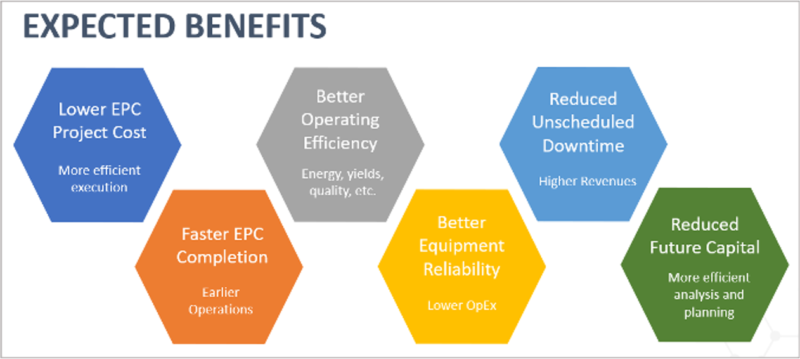
- Lower engineering, procurement and construction (EPC) project costs due to more efficient execution such as data handover, less backtracking, etc.
- Faster EPC Completion leading to earlier operational profits.
- Better Refinery Operating Efficiency such as equipment availability, energy, yields, quality, etc.
- Better Equipment Reliability providing lower operating expense.
- Reduced Unscheduled Downtime from equipment failures.
- Reduced Future Capital Spending from more efficient use of capital.
The expecting payout is between 1 and 3% of total investment cost for project savings and early start-up (items 1-2), and 1-3% for on-going annual savings (items 3-6).
Based on this, a budget for enhanced digital technology can be established, typically standard equipment for any new project. Intangible benefits are realized in regulatory compliance, community relations and plant morale.
Creating a Smart Refinery
The Methodology or Process to develop a digitized, smart refinery involves the following:
- Providing a foundation utilizing specialized hardware, software and infrastructure for basic process operations.
- Building higher-level layers of data management to provide advanced process control, plant-wide data integration, ERP interface and advanced analytics.
- Providing remote monitoring capability to reduce on-site manpower needs, collaborate with business partners and to integrate multiple facilities.
- Providing initial and ongoing training for operations, maintenance, technical and any personnel involved in daily operations.
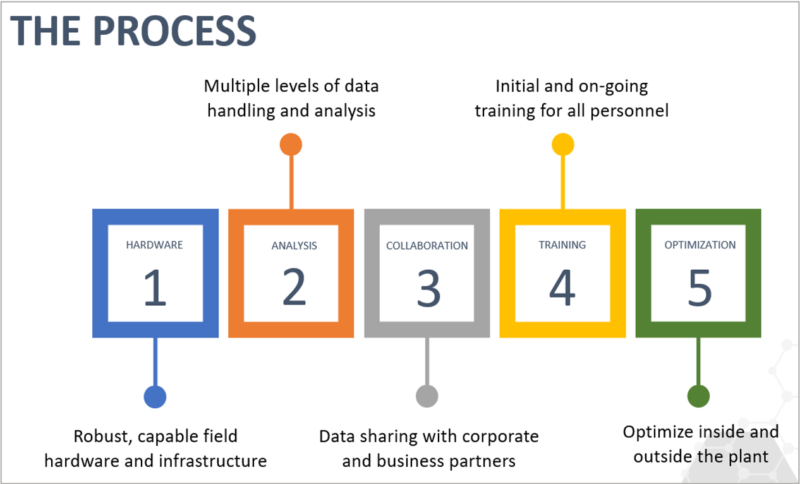
Altogether, this provides full integration to optimize the plant, the supply chain, off-take partners and more.
Real-Time Optimization
The foundation for the network architecture requires integration among five key categories:
The first three categories – Control Systems, Safety & Compliance, and Communications are the backbone of the information system with enhanced capabilities to interact up and down the line.
The remaining two categories are data processing and analytical systems… Data Collection and Analysis – Digital Twins. These are typically implemented over time in a piecemeal fashion – the key with a Smart Refinery is to implement this all together, integrated and optimized from the start.
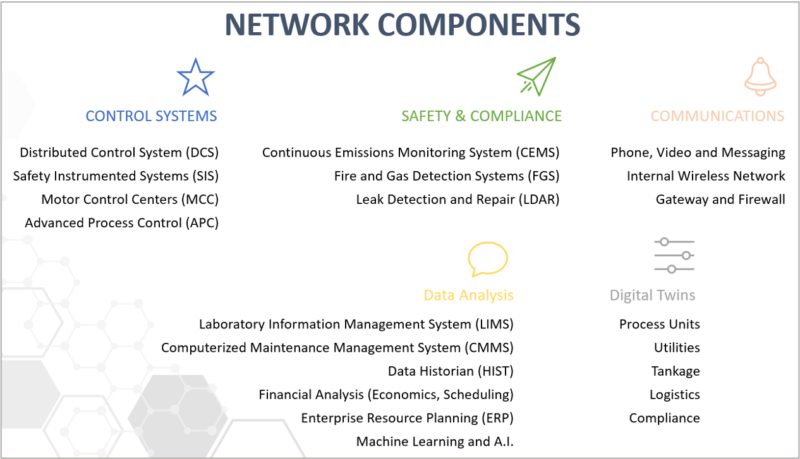
Digital twins are dynamic process models operating in real time covering the full plant and all integrated together. They provide a comparison of actual performance versus expected performance. They can spot discrepancies in order to pinpoint issues and stay ahead of trends. Things that used to take days or weeks to analyze are now done instantaneously. When applied consistently and thoroughly across the plant, the result is Real-Time Optimization (RTO).
Sustainability Through Adaptability
The downstream industry is being challenged with demand disruptions, environmental and social initiatives, and changing governmental mandates. The facilities that survive will need to adapt in many ways… and digital technology may be the most important of all the tools available. Given that:
There must be ongoing effort to maintain compatibility with industry standards and equipment designs… with particular attention to useability, training and implementation.
There must be a plan for future incremental upgradability (to be future-proof).
And always, continue to learn and enhance the use of digital technology as new products develop and become available and commonplace. The curve is steep, and we need to stay on the forefront.
In total, we believe that a grassroots refinery can utilize available, proven technology to ensure superior performance for the entire plant lifespan. Any new plant, or a significant upgrade or expansion of an existing plant, must utilize digital technology in its entirety, in order to adapt, survive and thrive.
As originally published in the Bakken Oil Report, Spring/Summer 2021 issue: https://bakkenoilreport.com/


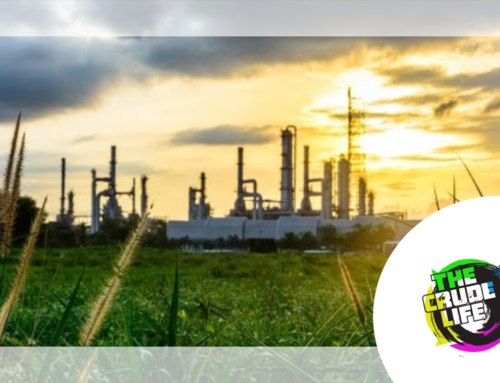

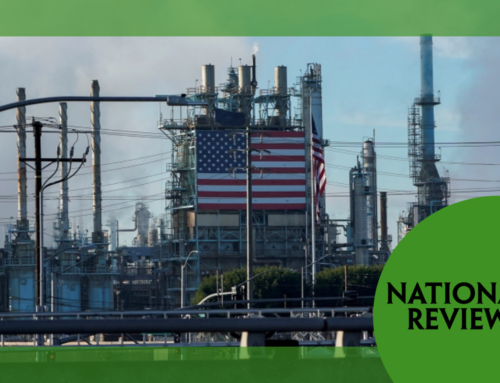
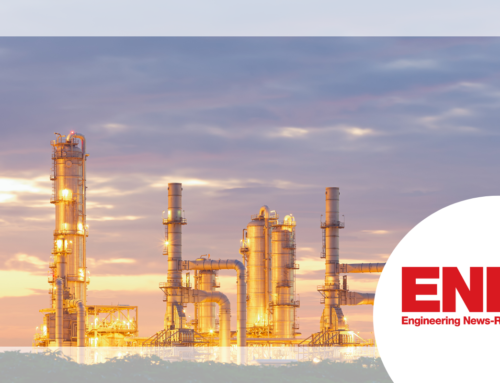

Leave A Comment